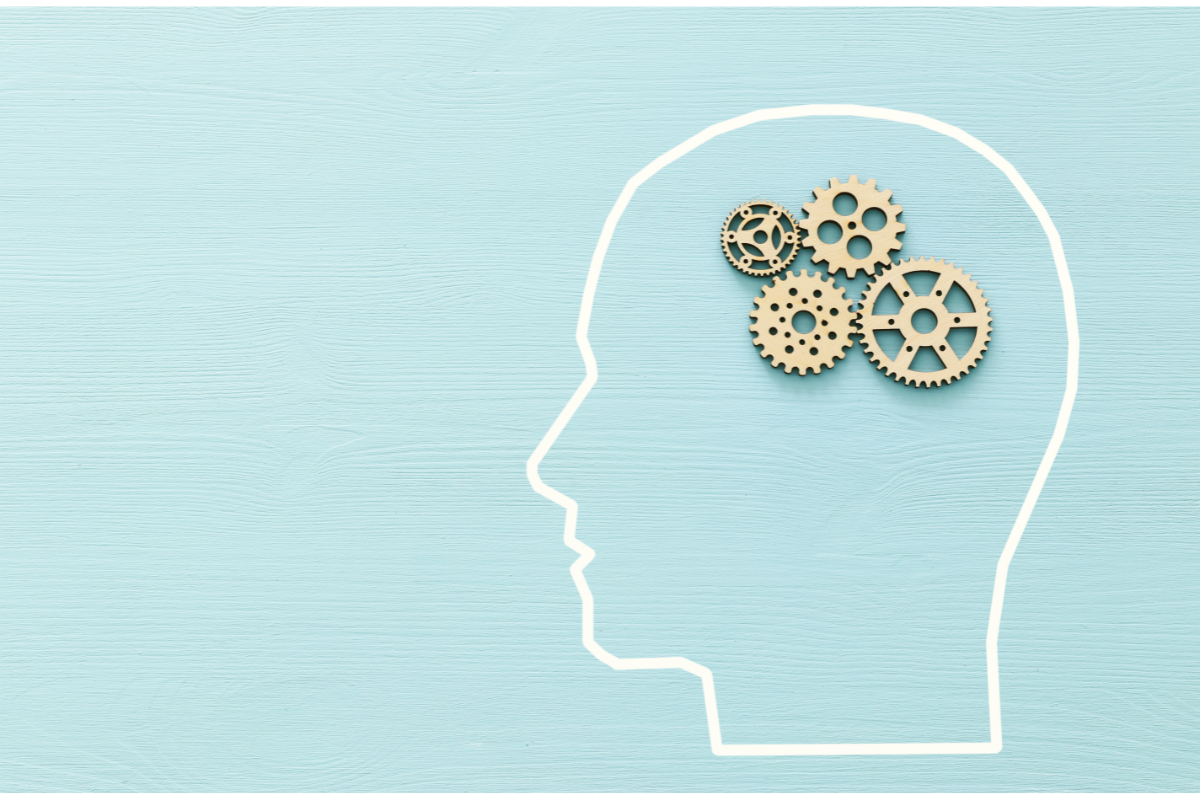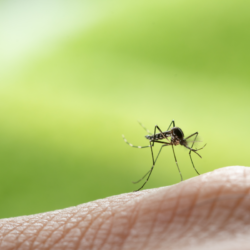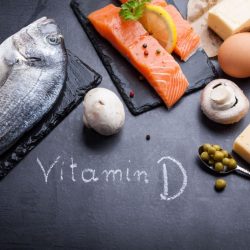ADHD, or Attention Deficit Hyperactivity Disorder, is a common neurodevelopmental disorder in children. It is characterised by symptoms such as inattention, impulsivity and hyperactivity, which can make everyday life difficult for children with the disorder. However, there are strategies and techniques that can help to manage the day-to-day lives of children with ADHD more effectively. In this article, we will explore various aspects of managing ADHD in children and provide practical advice for parents and carers.
Establishing a structured routine
A structured routine is essential for children with ADHD, as it provides them with a stable and predictable framework. Children with this disorder can find it difficult to concentrate and stay organised, which can make certain daily tasks more difficult. By establishing a regular routine for activities such as homework, meals and bedtime, parents can help children manage their time better and feel more in control.
Encourage regular breaks
Children with ADHD may find it difficult to stay focused for long periods. It is therefore important to allow them to take regular breaks to relax and recharge their batteries. Breaks can include physical activities, such as playing outside, or quiet activities, such as reading or playing board games. These breaks allow children to refocus and recharge their energy so that they can concentrate better later on.
Encouraging a calm environment
A calm environment is beneficial for children with ADHD, as it reduces distractions and encourages concentration. Parents can set up a quiet workspace or study area where children can concentrate on their tasks without being interrupted. It may be helpful to eliminate excessive visual and auditory stimuli, such as television or loud music, to create an environment conducive to concentration.
Use time management techniques
Time management is often a challenge for children with ADHD, as they may find it difficult to estimate how long it will take to complete a task. Using time management techniques, such as timers or visual schedules, can help teach children to organise their time better. Parents can help by explaining the time expectations for each task and providing visual reminders to help the child stay on track.
Involving the child in planning
Involving the child in the planning of activities and tasks can help reinforce their commitment and responsibility. Parents can discuss goals and expectations with the child, and let them make decisions about parts of their daily routine. This can help the child to feel more involved and motivated, which can make the day-to-day management of ADHD easier.
Encourage physical activity
Regular physical activity is beneficial for all children, but it can be particularly helpful for those with ADHD. Exercise helps release built-up energy and promotes concentration. Parents can encourage their children to take part in physical activities they enjoy, such as sports, dancing or cycling. These activities can also be an excellent opportunity for children to socialise with their peers and develop their social skills.
Use positive reinforcement techniques
Children with ADHD can often feel discouraged or frustrated by their difficulties in concentrating or staying organised. Using positive reinforcement techniques can help them stay motivated and develop self-esteem. Parents can encourage and reward positive behaviour, such as completing tasks or improving concentration. This can boost their self-confidence and their willingness to tackle the daily challenges associated with ADHD.
Setting realistic goals
It is important to set realistic goals for children with ADHD, taking into account their abilities and limitations. Over-ambitious goals can lead to frustration and discouragement, whereas realistic and achievable goals encourage success and motivation. Parents can work with the child to set specific and measurable goals, and celebrate them when they are achieved.
Communicating with teachers
Communication with teachers is essential to ensure consistency between home and school in managing a child’s ADHD. Parents can inform teachers about strategies that work at home and ask for their support in making adaptations in the classroom. This may include measures such as visual reminders, seating at the front of the class or regular breaks. Collaboration between parents and teachers is crucial to helping the child succeed at school despite the challenges associated with ADHD.
Encouraging social skills
Children with ADHD can sometimes experience difficulties in social situations because of their impulsivity or hyperactivity. Parents can help them develop their social skills by teaching them strategies such as active listening, emotion management and conflict resolution. Encouraging participation in group activities and supporting children in their social interactions can also help to strengthen their social skills and general well-being.
Offering emotional support
Children with ADHD can sometimes feel frustrated, discouraged or different from their peers. It is essential to offer them emotional support and reassure them of their abilities. Parents can create an environment where the child feels understood and accepted, by encouraging open communication and offering empathetic listening. Recognising children’s efforts and valuing their personal qualities can help boost their self-confidence and emotional well-being.
Providing a stimulating environment
A stimulating environment can help children with ADHD to channel their energy productively. Parents can encourage the child to engage in activities that capture their interest, such as reading, puzzles, educational games or creative arts. These activities can provide a positive outlet for energy and hyperactivity, while stimulating the child’s intellectual and creative development.
Calling on professionals
In some cases, it may be necessary to call in professionals to help manage a child’s ADHD. Psychologists, psychiatrists or therapists specialising in ADHD can provide additional advice, strategies and treatments to help the child better manage his or her symptoms. It is important to consult qualified professionals and follow their recommendations to ensure the child’s well-being.
Andrew Huberman’s natural strategies for managing ADHD in children
The natural approach to managing Attention Deficit Hyperactivity Disorder (ADHD) in children focuses on overall well-being, a balanced diet, physical activity and the use of nutritional supplements. These methods, recommended by neuroscientist Andrew Huberman, can be used alone or in addition to traditional medical treatment.
Physical exercise to stimulate concentration:
Exercise is a powerful tool for improving concentration and reducing hyperactivity. By stimulating the release of neurotransmitters such as dopamine, regular exercise can help manage ADHD symptoms. Physical activities could include team sports, swimming, cycling or even simple walks in the open air.
A balanced diet to support brain health:
People with ADHD are often drawn to sugary foods, which temporarily boost concentration by stimulating dopamine. However, a balanced diet is crucial. It is advisable to avoid simple sugars and to find out about potential food allergies that could exacerbate ADHD symptoms.
Food supplements to boost attention:
Omega-3s can have a positive effect on attention. Andrew Huberman recommends a dose of more than 300mg a day of DHA for its effects on attention. Another supplement, phosphatidylserine, at a dose of 200mg a day, can support improvements in ADHD symptoms.
Mindfulness practices to improve self-regulation:
Mindfulness techniques, such as meditation, yoga or deep breathing, can help children with ADHD develop attention skills and manage stress.
In summary, the natural management of ADHD in children requires a holistic approach that emphasises physical exercise, a balanced diet, the use of nutritional supplements and mindfulness practices. Every child is unique, so it is essential to tailor these strategies to meet individual needs. It is also advisable to consult a health professional before starting any new routine or dietary supplement.
Natural supplements for managing daily life with ADHD
Managing the daily life of a child with ADHD requires many resources, from behavioural therapies to adequate nutrition and educational support. However, managing the child’s emotional state and ensuring restful sleep are fundamental aspects of improving their quality of life. In this context, certain natural products can complement other interventions.
RESCUE® Kids and RESCUE NUIT® Kids are two examples of natural products that could help. RESCUE NUIT® Kids, for example, combines the original RESCUE® formula with Bach Flower® Original White Chestnut. The latter is associated with mental serenity. Alcohol-free and of natural origin, this product is designed to promote peaceful sleep. Good sleep is essential for all children, and even more so for those struggling with the challenges of ADHD.
When it comes to managing day-to-day emotions, RESCUE® Kids could offer support. It contains a blend of five Bach® Original Flower Remedies, also alcohol-free, designed to promote serenity. It is important to note that ADHD is not just about hyperactivity and inattention, but also about regulating emotions.
Homeopathy to help hyperactivity
In the context of homeopathic treatment of Attention Deficit Disorder with or without Hyperactivity (ADHD), the use of Dopamine 5 CH is commonly recommended. It is recommended to take 5 granules in the morning on an empty stomach. This treatment can be used in conjunction with other ADHD medications.
Other suitable homeopathic remedies may also be used, particularly to calm children who are agitated or have difficulty concentrating.
For specific symptoms such as incessant hand and finger agitation, sleep disorders (including night terrors, insomnia, bruxism), and problems with memory or concentration, Kalium bromatum 15 CH, 5 granules before bedtime, may be an appropriate option.
In cases of agitation in both hands and feet, sleep disturbance or difficulty concentrating, Tarentula hispana 15 CH, also 5 granules at bedtime, may be indicated, especially if improvement is observed when the child is engaged in stimulating physical or mental activities or listening to rhythmic music.
Mercurius solubilis 30 CH, taken at the same dosage, is recommended for children with angry outbursts.
Is there a link between OCD and ADHD?
Yes, there is a link between obsessive-compulsive disorder (OCD) and attention deficit hyperactivity disorder (ADHD). Several studies have shown that these two conditions can coexist in the same person and share certain clinical, genetic and neurobiological characteristics.
OCD is an anxiety disorder characterised by obsessions and compulsions. Obsessions are intrusive and unwanted thoughts that cause anxiety, while compulsions are repetitive behaviours or thoughts that the person feels compelled to perform in order to relieve anxiety. ADHD is a neuropsychiatric disorder characterised by symptoms of attention deficit, hyperactivity and impulsivity. The disorder generally affects children, but can persist into adulthood.
FAQ
1. What are the common symptoms of ADHD in children?
Common symptoms of ADHD in children include inattention, hyperactivity and impulsivity. They may have difficulty concentrating, following instructions, sitting still or waiting their turn.
2. Is ADHD curable?
ADHD is not curable, but it is manageable. With a combination of coping strategies, therapy and support, children with ADHD can learn to better manage their symptoms and succeed in different aspects of their lives.
3. Are all children with ADHD hyperactive?
No, not all children with ADHD are necessarily hyperactive. Some children may present symptoms mainly related to inattention, while others may be more impulsive. ADHD comes in different forms and can vary from one child to another.
4. What treatments are available for ADHD in children?
Treatments for ADHD in children may include a combination of behavioural therapy, educational support, medication and coping strategies. The choice of treatment will depend on the child’s specific needs and the severity of their symptoms.
5. Does ADHD disappear in adulthood?
ADHD often persists into adulthood, although symptoms may change. Some people learn to manage their symptoms better as they grow older. While others may continue to experience ADHD-related challenges throughout their lives.
6. How does ADHD affect a child’s school life?
ADHD can have a significant impact on a child’s school life. Difficulties with attention and organisation can make school tasks more difficult. This can lead to delays or learning problems. However, with the right support, children with ADHD can succeed academically.







